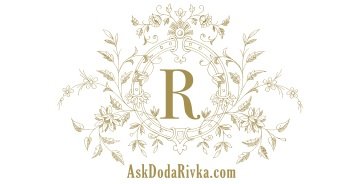Rebuilding After Divorce: A Jewish Woman’s Path to Healing and Wholeness
There’s a deafening silence that follows divorce — even when it was necessary, even when it was right. It’s the silence of shattered dreams, of identities dissolving, of a home that feels alone.. .
But that silence isn’t emptiness. It’s sacred space. A place where HaShem whispers, “Start again, My daughter. Not from nothing — but from truth.”
Because in Judaism, endings are never final. They are transformations.
Every get is also a new beginning — a passage from constriction to expansion, from exile to return.
The Gift Hidden in the Breaking
The Baal Shem Tov teaches that when something breaks, its inner light is released.
When a heart breaks, it makes room for more light — more compassion, humility, and authenticity.
Divorce doesn’t define you. It refines you.
It strips away illusions of control, of perfection, of “should have been.” What remains is essence — the woman you truly are beneath the layers of expectations, fear, and guilt.
As the Psalmist says: “Karov HaShem lenishberei lev” — HaShem is close to the brokenhearted.
Not despite your pain, but through it.
The Spiritual Work of Healing
Healing after divorce isn’t only emotional. It’s deeply spiritual.
The Talmud teaches that “a person without joy cannot draw close to G-d.”
So your healing is not self-indulgent — it’s an act of avodah (Divine service).
Here are three pillars of healing — drawn from Torah, Chassidus, and the wisdom of our Matriarchs:
1. Teshuvah — Returning to Yourself
Divorce can leave you feeling lost. But in truth, it’s an invitation to come home — not to the house you left, but to the soul within you.
Ask yourself:
Who am I now, without the roles and labels?
What lights me up?
What values and dreams still live in me, waiting to be reborn?
Teshuvah means return. Return to your essence. To your laughter. To your faith.
2. Emunah — Trusting the Journey
When your world feels uncertain, lean on what never changes: HaShem’s presence.
He was with you under the chuppah, and He is with you now in the rebuilding.
Leah trusted when she was unloved. Rachel trusted when she let go.
You, too, can trust that this chapter — though painful — is purposeful.
As the Rebbe said: “When you think good, it will be good.”
Faith is not denial of pain — it’s the decision to walk through it with G-d by your side.
3. Simcha — Choosing Joy Again
Joy is not a mood; it’s a mitzvah.
It’s the soul saying, “I am still here.”
Start small — light a candle, dance in your kitchen, bless yourself aloud.
Every act of joy rebuilds your vessel to receive blessing.
What the Children Need Most
Many divorced parents worry endlessly about their children.
But the truth is, what your children need most is not a “perfect home” — it’s a peaceful mother.
When you heal, they heal.
When you smile again, they remember that life continues.
Your faith teaches them resilience more than any sermon could.
So bless them not with words of fear or bitterness, but with words of hope:
“HaShem has a plan for all of us. And we’re going to be okay.”
The Power of Sisterhood
Healing doesn’t happen in isolation. Every woman needs her chevra — her tribe. Our Matriarchs had each other. Miriam had Yocheved. Ruth had Naomi. Esther had Mordechai. Find your mentors, friends, or community — women who see your light even when you can’t. Let their faith hold you until your own returns.
Becoming the Matriarch of Your New Line
You are now the Matriarch of a new generation — your own rebuilt lineage.
Your story will give courage to other women. Your healing will heal the world.
Don’t be ashamed of your past; sanctify it.
You’ve walked through fire and came out with sparks.
In Kabbalah, we are taught that the world was created through Shevirat HaKelim — the shattering of vessels — so that through repair (Tikkun), we can reveal even greater light.
Your divorce was one such breaking.
Your healing is your Tikkun.
The Blessing
May you rebuild not from fear, but from faith.
May you discover the Leah within you — patient and grateful — and the Rachel within you — selfless and strong.
May you attract not another half, but a whole soul that meets you in your fullness.
And may your new life be a sanctuary of peace, purpose, and Divine love.
Because sometimes, the holiest thing you can do… is begin again.
